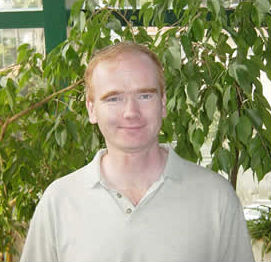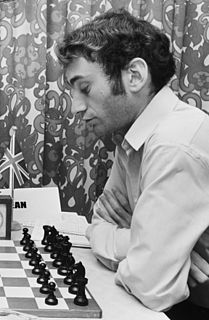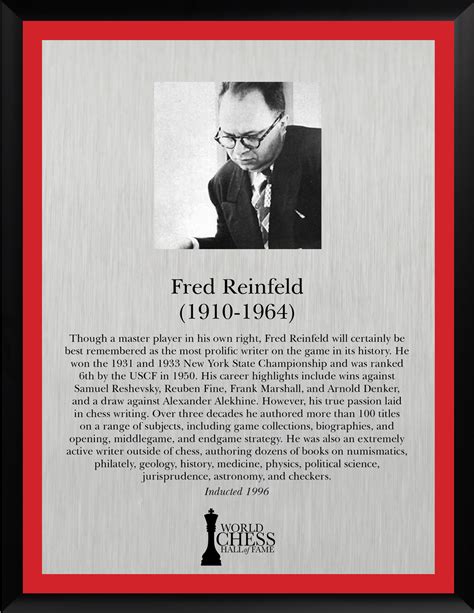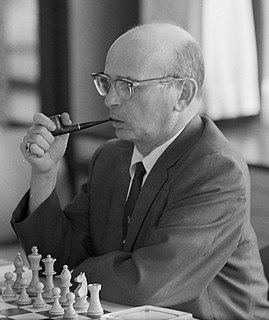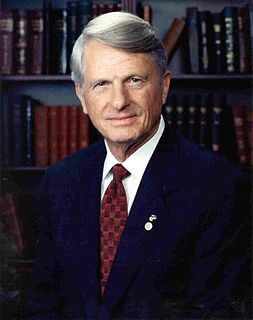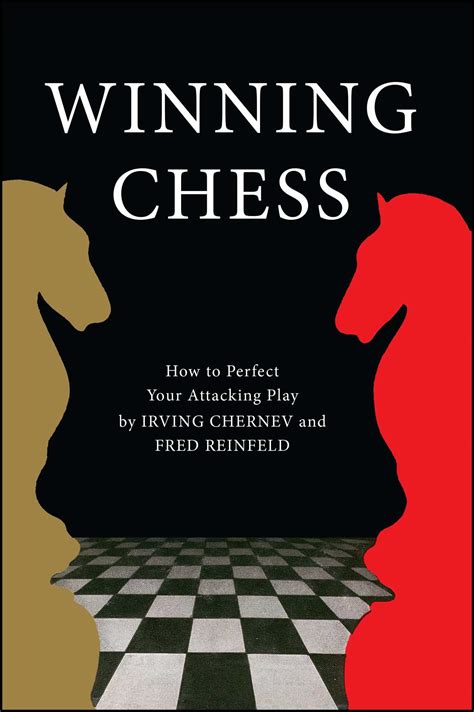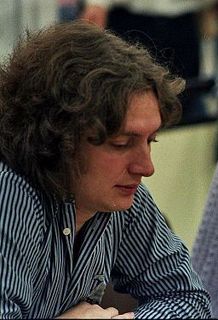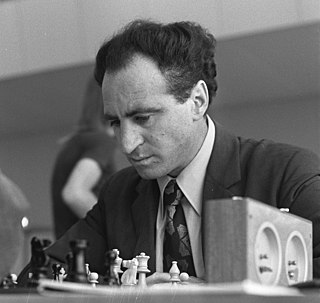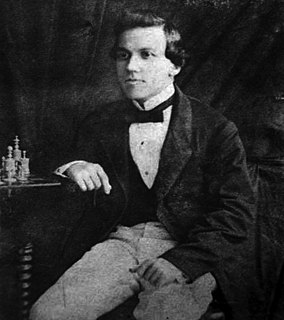A Quote by Neil McDonald
Even in the King's Gambit ... White is no longer trying to attack at all costs. He has had to adapt his approach and look for moves with a solid positional foundation ... As often as not, his strategy consists of stifling Black's activity and then winning in an endgame thanks to his superior pawn structure.
Related Quotes
By what right does White, in an absolutely even position, such as after move one, when both sides have advanced 1. e4, sacrifice a pawn, whose recapture is quite uncertain, and open up his kingside to attack? And then follow up this policy by leaving the check of the black queen open? None whatever!
Fireheart tensed, waiting for whatever had hunted down these apprentices to emerge from the trees and attack, but nothing stirred. Feeling as if his legs hardly belonged to him, he sprang down and stumbled across to Swiftpaw. The apprentice lay on his side, his legs splayed out. His black-and-white fur was torn, and his body was covered with dreadful wounds, ripped by teeth far bigger than any cat's. His jaws still snarled and his eyes glared. He was dead, and Fireheart could see that he had died fighting.
There is a man who exists as one of the most popular objects of leadership, legislation, and quasi-literature in the history of all men. . . . This man, that object of attention, attack, and vast activity, cannot make himself be heard, let alone understood. He has never been listened to. . . . That man is Black and alive in white America where the media of communication do not allow the delivery of his own voice, his own desires, his own rage.
Observe your cat. It is difficult to surprise him. Why? Naturally his superior hearing is part of the answer, but not all of it. He moves well, using his senses fully. He is not preoccupied with irrelevancies. He's not thinking about his job or his image or his income tax. He is putting first things first, principally his physical security. Do likewise.
He loves me, and I reward his love by forcing on him something he hates. In the evening, after we dance, he rarely returns to the throne; he dances with others or moves from place to place through the room. The court thinks he is trying to be gracious, sharing his attention. Only I see that he moves always to the empty spot and the court always moves after him. He is like a dog trying to escape his own tail. He indulged himself in one brief moment of privacy, and almost died of it. Relius, he hates being king.
His face set in grim determination, Richard slogged ahead, his fingers reaching up to touch the tooth under his shirt. Loneliness, deeper than he had never known, sagged his shoulders. All his friends were lost to him. He knew now that his life was not his own. It belonged to his duty, to his task. He was the Seeker. Nothing more. Nothing less. Not his own man, but a pawn to be used by others. A tool, same as his sword, to help others, that they might have the life he had only glimpsed for a twinkling. He was no different from the dark things in the boundary. A bringer of death.
